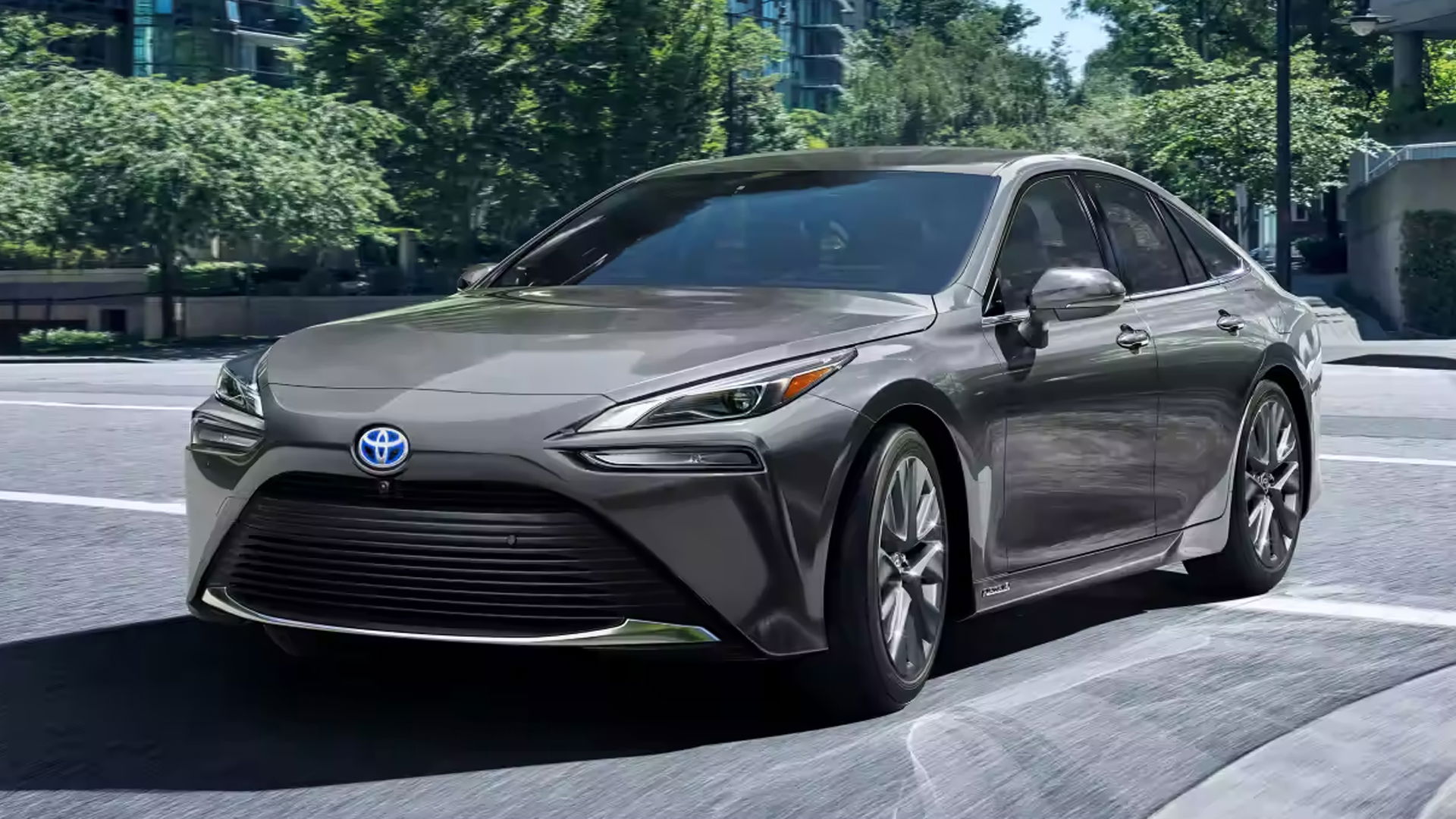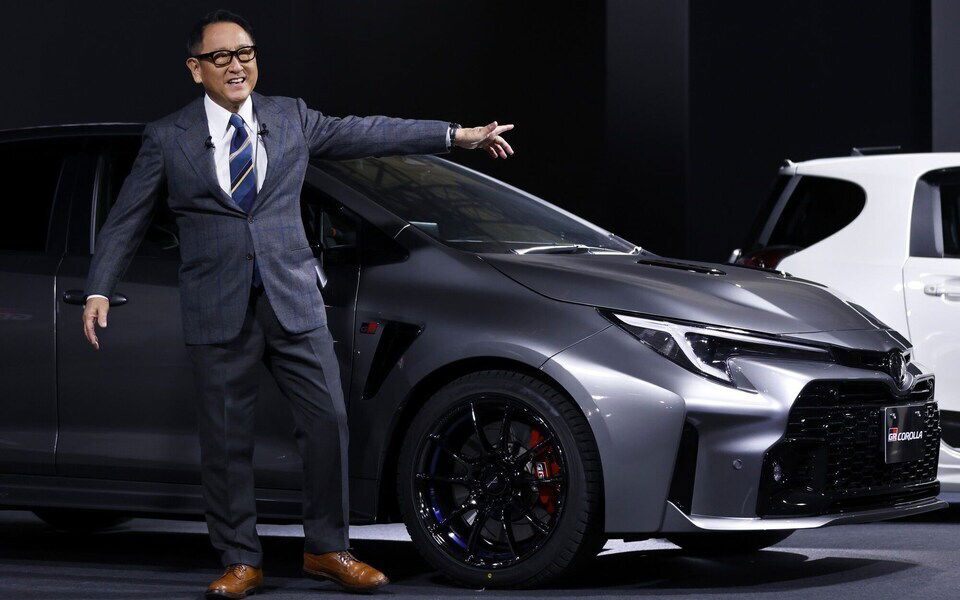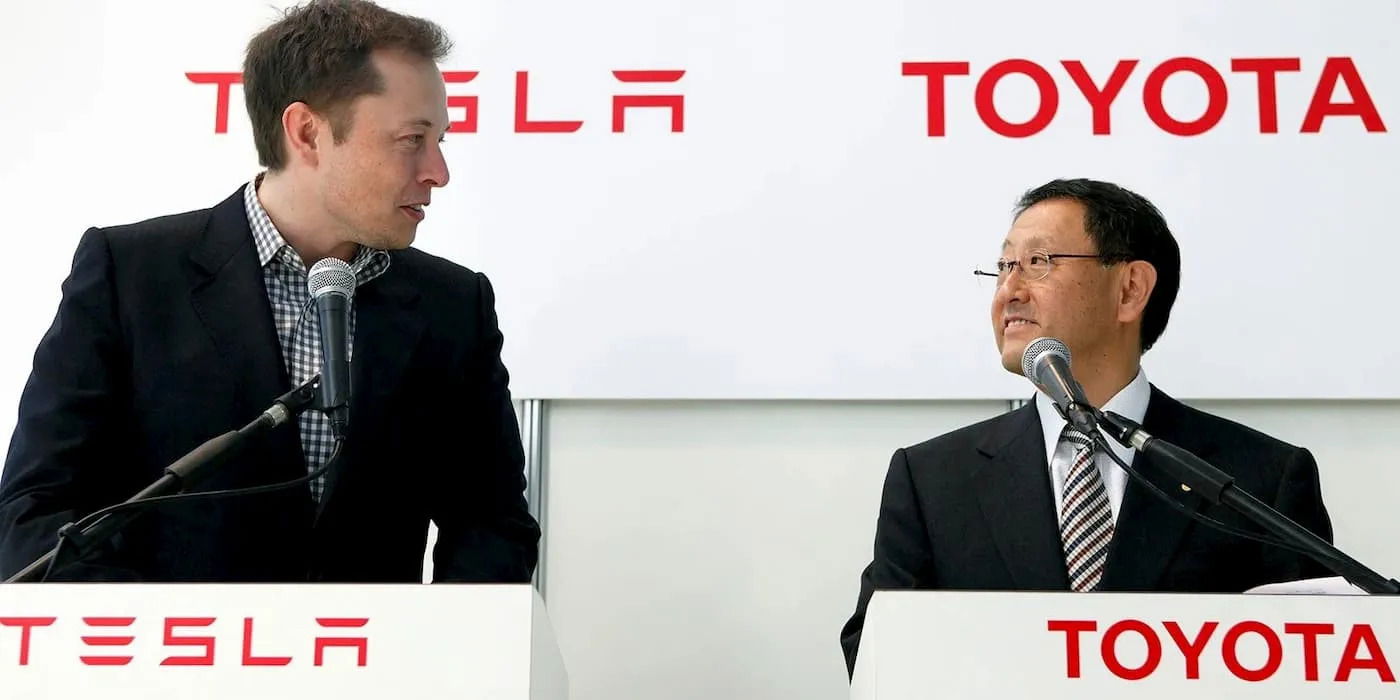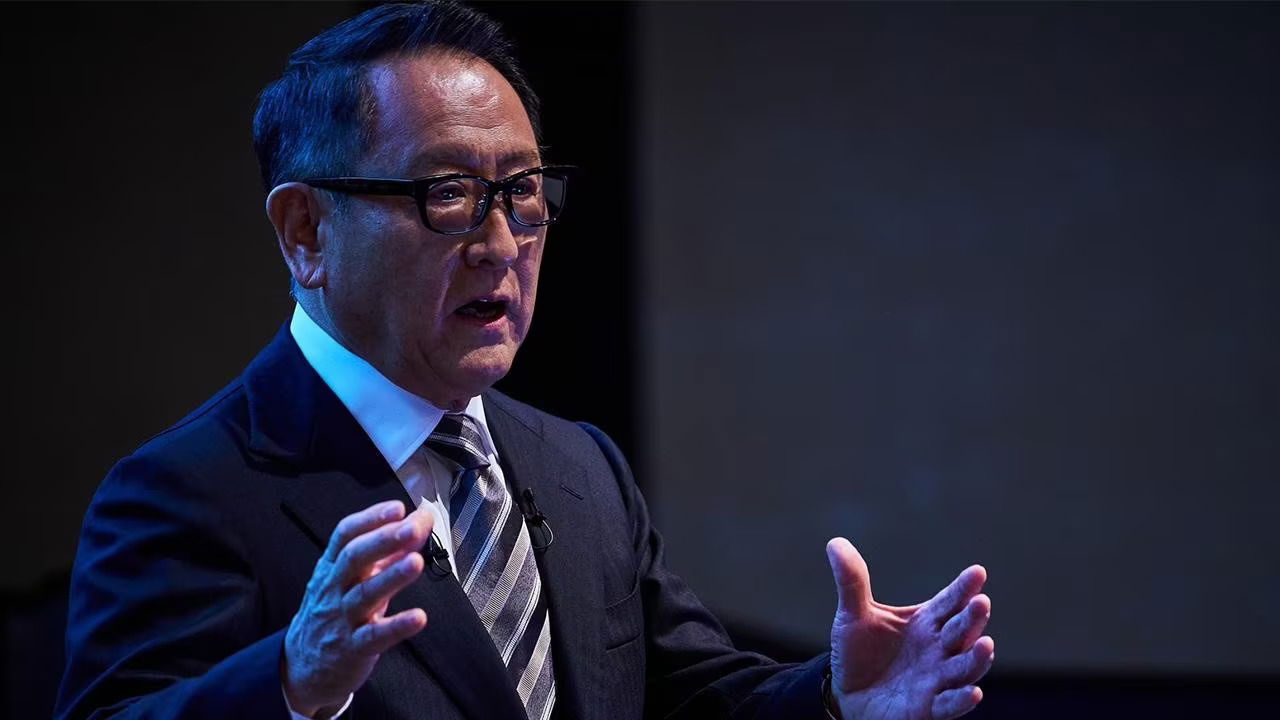Toyota Chairman Argues that Electric Cars Will Never Dominate the Market
- Toyota Chairman Akio Toyoda asserts electric cars will not surpass 30% market share, advocating a "multi-pathway approach" with hybrids and hydrogen vehicles.
- Despite criticisms, Toyota remains committed to hydrogen fuel cell technology, showcasing global growth in fuel cell electric vehicle (FCEV) sales.
- The debate over Toyota's delayed entry into the electric vehicle (EV) market persists, with critics highlighting a slower response compared to competitors.
- Toyota's perspective clashes with industry expectations, as the global electric car market faces challenges, prompting calls for government intervention.
Toyota chairman Akio Toyoda has made a bold statement regarding the future of the electric vehicle (EV) market. According to him, electric cars will never account for more than a third of the market, and consumers should not be forced to buy them.
This assertion comes amid a global push toward electric mobility and increased regulation aimed at reducing carbon emissions.
This isn’t the first time the Japanese marquee has expressed a feeling of “coercion” over the push for electrification. Toyoda already raised concerns about laws forcing carmakers to switch to EVs, calling them "idealistic" and stating that they did not consider customers.
These statements indicate that he is cautioning against the strong push for EVs and emphasizing the need for a variety of carbon-reducing choices for customers.
During the recent Questions and Answers session with the company’s employees, Toyoda emphasized the importance of a "multi-pathway approach" to vehicle technology, advocating for the continued development of hybrid and hydrogen-powered cars alongside electric vehicles.
He believes that battery EVs will only secure a maximum of 30% of the market, with the remaining 70% taken by fuel cell EVs, hybrids, and hydrogen cars.
Emitting Nothing But Water From The Tailpipe – Toyota

2023 Toyota Mirai hydrogen-powered sedan
Toyota has made significant progress in its development and promotion of hydrogen fuel cell technologies for both passenger cars and commercial vehicles. The company has continued to demonstrate its commitment to hydrogen cars, despite challenges and market shifts affecting the adoption of fuel-cell electric vehicles (FCEVs).
Recent data from Toyota's sales and production reports indicates a positive year-on-year growth in both performance results for electrified vehicles, including hydrogen FCEVs.
The company has reported a significant increase in FCEV sales globally, with notable growth rates observed in different reporting periods and regions, such as North America, Europe, Asia, China, and other areas. The data reflects Toyota's efforts to accelerate the adoption and sales of hydrogen fuel cell vehicles.
Additionally, Toyota's focus on hydrogen-powered trucks has gained attention, with plans to prioritize the development and deployment of commercial vehicles utilizing hydrogen fuel cells.
The company's chief technology officer, Hiroki Nakajima, emphasized the potential of hydrogen fuel cell technology for mid-size trucks, highlighting the ease of establishing refueling networks for commercial vehicles, which operate mainly from point A to point B.
Furthermore, Toyota is actively pursuing advancements in hydrogen fuel cell technology, including the development of more compact hydrogen tanks, fuel cells, and alternative hydrogen storage methods.
Efforts to reduce costs and increase efficiency in fuel cell technology are underway, with plans to further innovation in this area.
Despite challenges such as limited refueling infrastructure and competition from battery electric vehicles (BEVs), Toyota's continued investment and progress in hydrogen car development indicate a strong dedication to advancing the use of hydrogen fuel cell technology in the automotive industry.
One of the key arguments put forth by Toyoda yesterday is that the appeal of electric cars is limited due to factors such as their high cost, the need for charging infrastructure, and the fact that one billion people in the world still live without electricity.
Furthermore, he pushed back against the notion that Toyota has fallen behind in the development of EVs, asserting that the company is right to focus on alternative technologies.
Greenwashing Toyota’s Image – Greenpeace

Akio Toyoda besides the GR Corolla - Photo credit: The Telegraph
Toyota's approach to electric vehicle (EV) development has been a topic of scrutiny in recent years. While the company has made strategic decisions with the introduction of hybrid and hydrogen-powered vehicles, some industry observers have noted that Toyota appeared to be cautious in embracing all-electric technology.
Greenpeace, a global environmental organization that operates independently as a network of campaigning organizations, accused Toyota of being a "global roadblock" and "spreading disinformation" about electric vehicles.
According to Greenpeace, Toyota is "lobbying to weaken vehicle emissions standards, greenwashing its image, and promoting electric vehicle disinformation while making big profits from polluting internal combustion engine and fossil-fueled hybrid cars."
One article from CNBC highlights that Toyota's first all-electric product was not introduced until 2020, trailing behind competitors who had already launched EV models prior to that.
Furthermore, the company's first globally available zero-emissions vehicle, the bZ4x, faced production limitations and was initially exclusive to Chinese consumers, leading to limited sales in the U.S.
Also, an article from Moneybox discussed Toyota's evolution over the years in its approach to electric cars, mentioning that Toyota sold off its shares in Tesla and discontinued an early battery-powered microcar due to concerns over the limits of EVs.
The article goes on to indicate that Toyota's delayed embrace of EVs allowed competitors like Hyundai to capitalize on clean-car successes and gain market share.
While Toyota has taken steps to address the EV market, such as announcing plans to launch five new zero-emissions models in the European market, it has faced criticism for what some perceive as a slow response to the electric car revolution.
The debate over whether Toyota lags behind in EV development compared to other automakers remains a topic of ongoing discussion in the automotive industry.
The Automotive Industry Needs Toyota

Photo credit: Electrek
Other carmakers, especially brands like Volvo that have gone all-in in the transition to electric propulsion, are watching intently at Toyota’s body language over EVs for several reasons.
As one of the world's largest and most influential automakers, Toyota’s position on key issues shapes industry trends. As a result, the company's approach to EVs impacts the strategies of other manufacturers and has the potential to influence global standards and regulations.
As a major player in the automotive market, Toyota's decisions concerning EVs can influence consumer and investor perceptions. Shifts in Toyota's EV strategy may prompt changes in consumer behavior, as well as impact investment in electric mobility infrastructure and technology.
Toyota's stance on EVs can impact policy discussions around emissions standards, vehicle electrification targets, and incentives for clean transportation. The company's voice holds weight in shaping regulatory frameworks that influence the broader automotive landscape.
Furthermore, Toyota's investments in a range of alternative technologies, including battery EVs, hybrids, and hydrogen-powered vehicles, contribute to advancements in automotive innovation.
The company's R&D efforts and product offerings have the potential to influence the trajectory of technological developments in the industry.
The Chairman Has Spoken

Photo credit: Quattroroute.it
The Toyota Chairman's remarks come as electric car sales in both the UK and Europe have slowed. In the UK, the market share of electric cars decreased from 16.6% in 2022 to 16.5% in 2023, falling short of the originally forecasted 17.2% share.
This trend has prompted calls for government intervention, with proposals for VAT cuts on electric car purchases and the implementation of zero-emission vehicle mandates.
In contrast, EVs amounted to a 7.6% share of the total US car market in 2023, according to the Kelley Blue Book, translating to a 5.9% upshift from the previous year. US electric vehicle sales broke sales records in 2023 with 1.2 million EVs sold.
Toyota's stance on the future of the automotive industry contrasts with the expectations of some industry observers, who have predicted a more rapid shift to electric vehicles. Despite this, the carmaker's recent announcement of record vehicle production and sales figures indicates that its "multi-pathway approach" may be gaining traction.
The debate over the future dominance of electric cars in the global market remains complex and highly contentious. As the automotive industry continues to evolve, the role of traditional car manufacturers like Toyota in shaping the future of mobility will be closely watched.